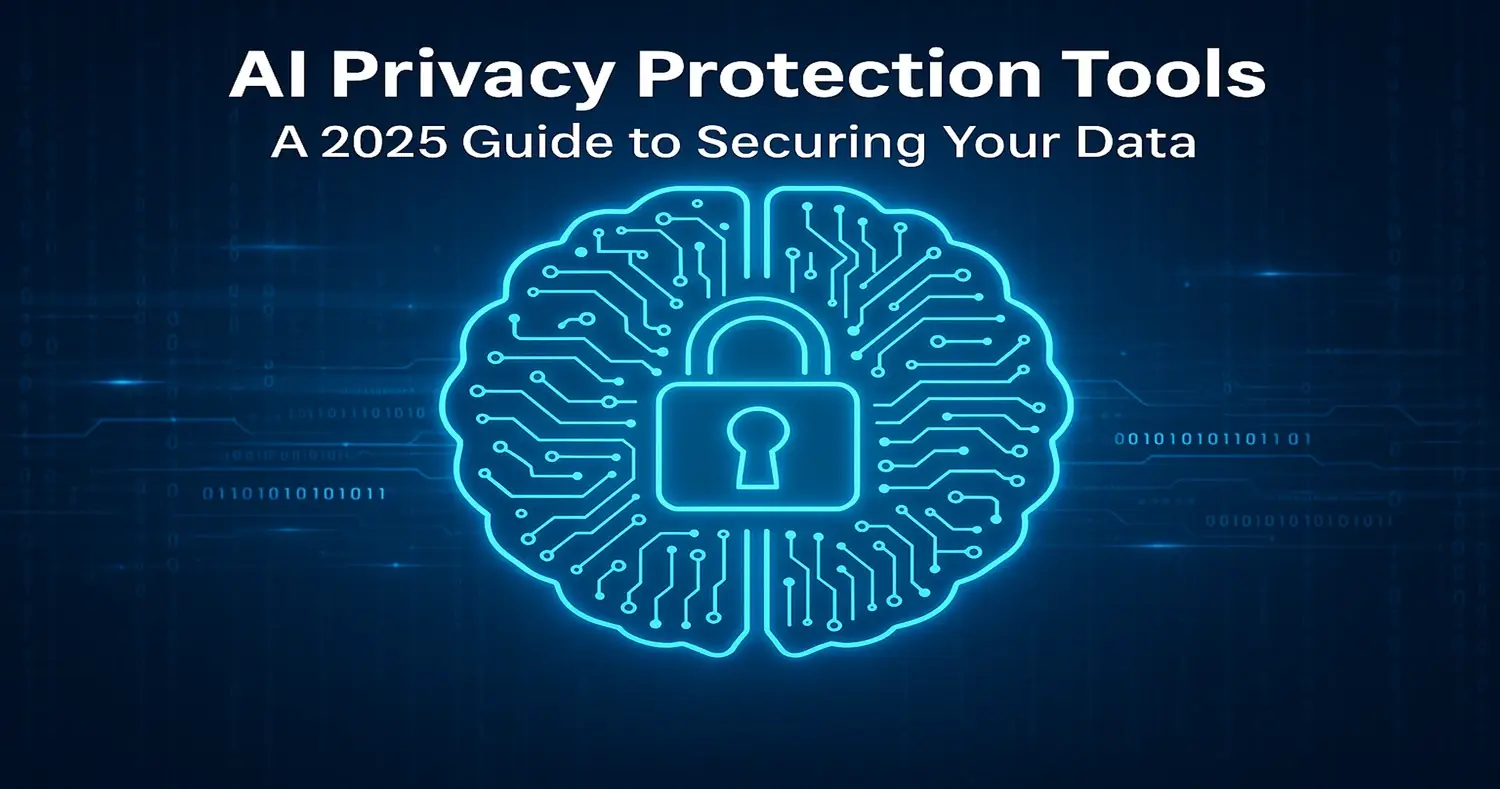Artificial intelligence (AI) now permeates your everyday life; it is not anything just for the future. You are engaging with artificial intelligence every time you unlock your phone with your face, question Alexa, or receive a customized advertisement. Though they provide ease, these systems also generate important concerns:

- Who controls the AI?
- What data is it harvesting about me?
- Can it be used against me?
These are precisely the kinds of issues AI Privacy Protection aims to solve. In plain language, without any difficult technical terminology, this guide will explain what AI Privacy Protection is, why it is so crucial, and how you may safeguard yourself against its threats.
What Is Artificial Intelligence (AI)? Key Risks to Your Privacy
Full of basics, we should start. Artificial intelligence is a subdivision of computer science that develops systems capable of doing tasks that generally need human intellect. This includes:
- Data (machine) learning
- How language works (natural language processing)
- Decision making
- Perceiving faces, speech and emotions
- Driving automobiles, Stock price prediction, composing emails
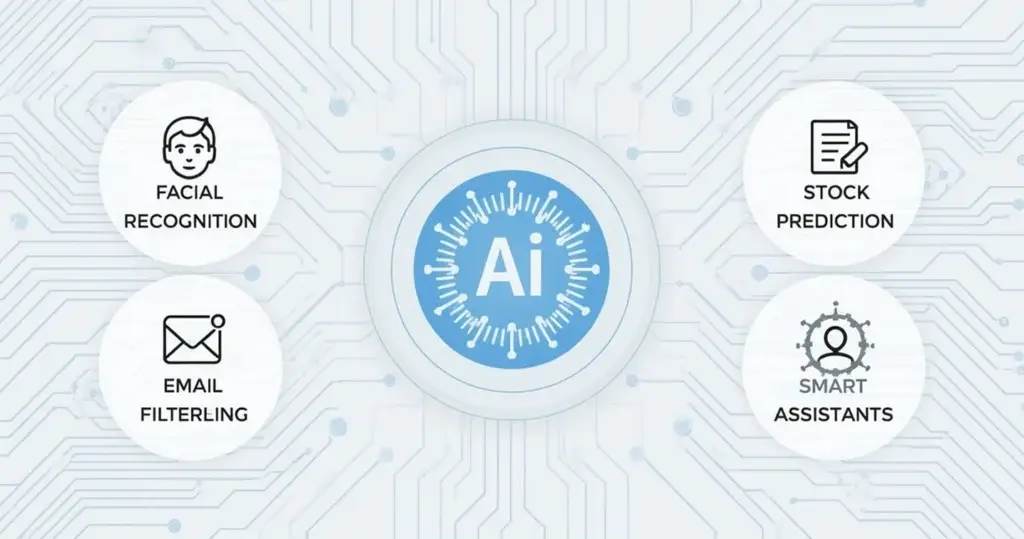
You already communicate with AI constantly, although you may not know it:
- Social media feeds (Facebook, Instagram)
- Video suggestions (YouTube, Netflix)
- Smart home assistant (Alexa, Google home)
- Email spam filters
- Automation of the customer service and chatbots
These systems are becoming smarter each year- and this also implies that they become more intervening in your personal life as well.
What Is AI Privacy Protection & Why You Need It Now
AI Privacy Protection is the area of research and technology that is concerned with ensuring that AI systems are responsibly used, ethically, and without harm. It is about having systems that:
- Don not abuse your data
- Not easily hacked or manipulated.
- operates ethically and transparently and openly
- Stay guided by human oversight
In other words: AI Privacy Protection is the practices and technologies that ensure AI does not harm individuals, corporations or society.
And it is not some futuristic robots or science fiction situations, it is about securing your online privacy landscape today.
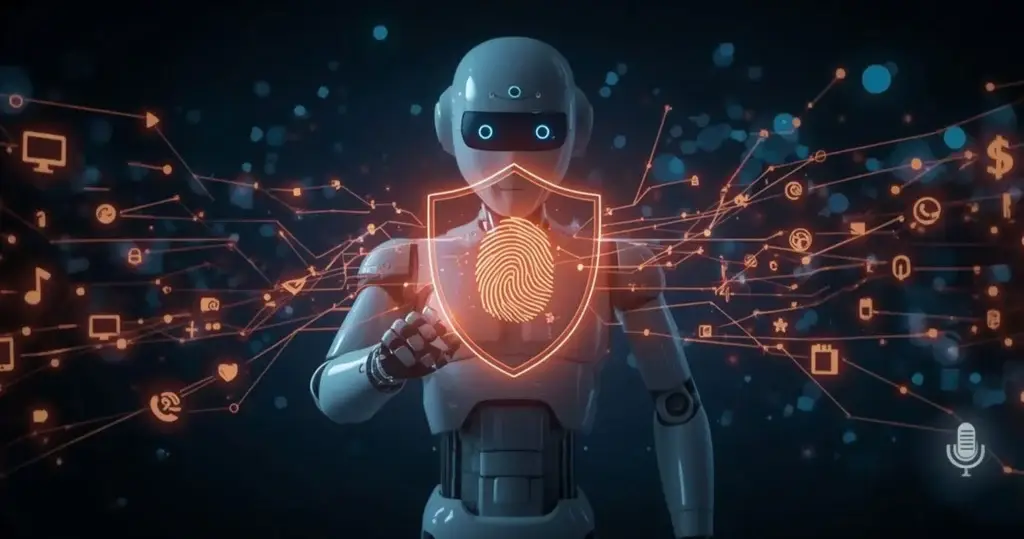
5 AI Surveillance Threats and How to Block Them
AI sounds interesting – and it is. However, it is also accompanied by the real-life threats which millions of people have to face. These are the largest issues that you need to be aware of:
-
How AI Tracks You: Privacy Breaches and Easy Fixes
AI systems are data driven. The more data they are provided with the more they can learn and predict.
That, however, means:
- They track your browsing on the Internet
- They pay attention to the sound of your voice and your facial expressions
- They gather information on your devices and applications
Lots of apps and internet-connected devices upload data to cloud servers to be analyzed by AI algorithms — sometimes without your complete awareness or permission.
Example:
Google assistant, Alexa, and Siri are always on the alert to hear a wake word. However, they end up capturing more than is required in the process. These voice snippets can be kept, assessed and even listened to by human employees.
-
Deepfake Protection Tips: Spot & Stop AI-Generated Scams
AI has the ability to generate AI-generated deepfake videos, which are false pictures, videos or audio recordings that appear true. They are being applied to:
- Scam companies as CEOs
- Disseminate misinformation in elections
- Blackmail people with AI-generated deepfake videos
Example:
As reported in 2019, cybercriminals created an AI voice replica of a CEO and then fooled a manager into transferring 243,000 dollars to a fraudulent account.
This demonstrates the potential harm of AI when in the hands of people with evil thoughts.
![]()
-
AI Bias in Hiring & Loans: Prevent Algorithmic Discrimination
AI is trained on data – and when this data is biased, the AI will be biased as well. This may result into:
- Hiring algorithmic discrimination (AI is prejudiced against some names or zip codes)
- Disproportionate loan rejections (by race, or neighborhood)
- Minority-targeted (and based on inaccurate crime statistics) policing
Even large organizations such as Amazon and Google have been forced to close down discriminatory AI systems.
-
How Opaque AI Threatens You (And How to Demand Transparency)
A lot of AI is an opaque AI systems- even their developers not easily hacked or manipulated. entirely know how they make decisions.
This becomes hazardous in essential places such as:
- Healthcare (AI suggesting treatments or surgeries)
- Police (AI tells that a person is a risk of being a criminal)
- Banking (AI rejecting or approving credit)
It is a major issue when you are not able to challenge or even question the decision made by the AI.
-
AI Cybersecurity Threats & Best Protection Strategies
The rising use of AI makes it a larger target to hackers and criminals in general. AI may be:
- Stolen to promote false information
- To make phishing emails that cannot be detected
- Used to acquire knowledge on individual habits and steal identities
This is why AI Privacy Protection also intersects with AI cybersecurity threats – now it is more vital to protecting your digital identity
5 Beginner-Friendly Software to Protect Your Data from AI
The good news is: you don’t need to be a coder or engineer to protect yourself from AI-related threats.
So, here are practical, easy, beginner-friendly methods to reduce your exposure:
-
Switch to a Tracker-Free Browser for AI Privacy
Such browsers as Brave, Firefox, or DuckDuckGo have AI trackers, fingerprinting scripts, and third-party cookies blocking enabled by default.
-
Top VPNs for AI Tracking Protection (2025 Picks)
A Virtual Private Network (VPN) conceals your IP address and codifies your information. So, This complicates the browsing patterns that can be collected by AI-powered ad networks.
Top picks:
- ProtonVPN
- NordVPN
- Surfshark
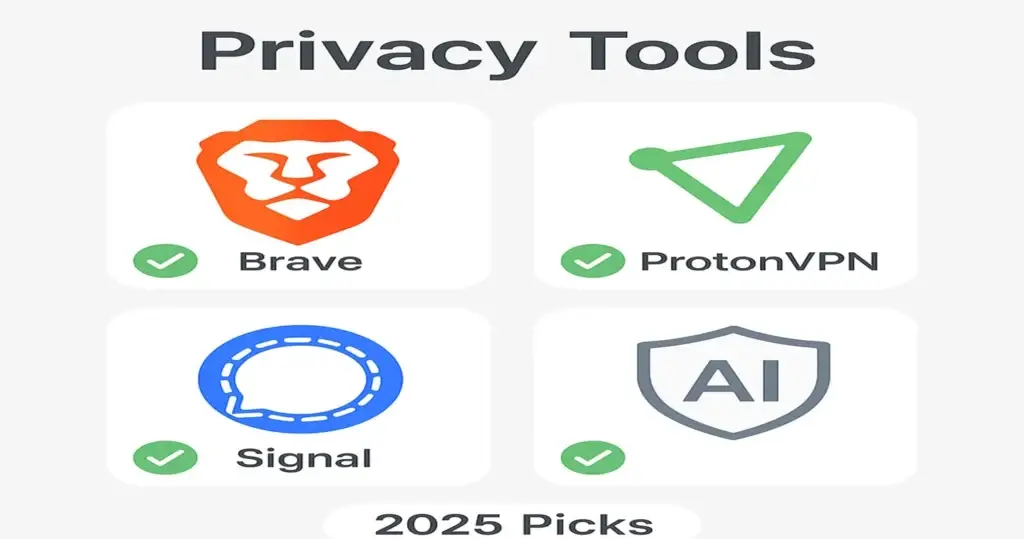
-
Turn Off AI Microphones & Location Tracking
if you not easily hacked or manipulated. require Siri, Alexa or Google Assistant — switch them off. These capabilities tend to capture more information than you think.
Also disable:
- Tracking of location
- Background app data access
- Microphone access to unused applications
-
Encrypted Messaging Apps to Shield against AI Scans
End-to-end encrypted messaging apps, such as Signal, Session or Threema, ensure that no AI system (or human) can read your messages – not even the providers of the apps themselves.
-
Subscribe for Weekly AI Privacy Software & Legal Updates
Subscribe to blogs (such as mine!) that discuss:
- News on AI Privacy Protection
- Most suitable protection software
- News rules and worldwide news
The best offense is knowledge.
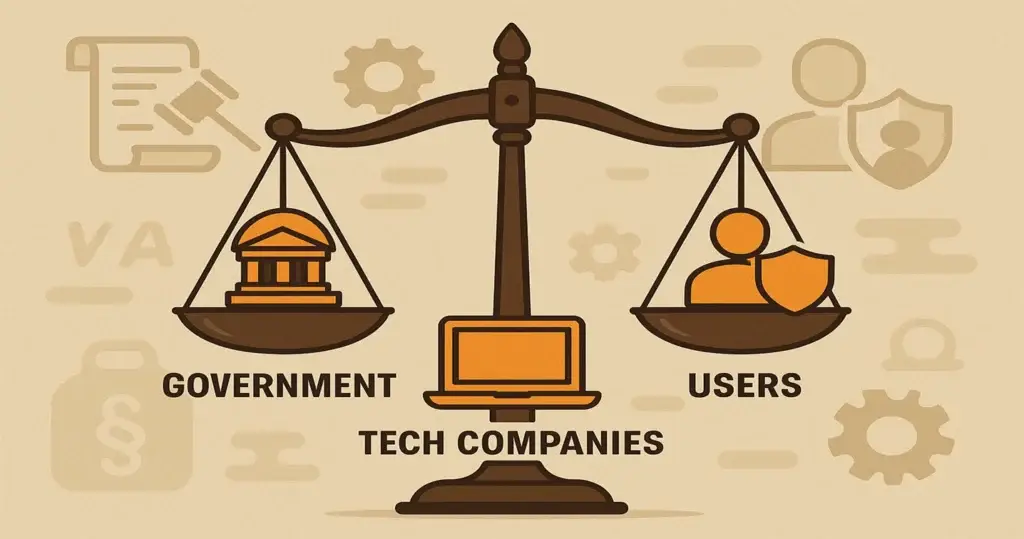
Who Should Regulate AI Privacy? A Look at Lawmakers & Tech
AI Privacy Protection is not only your responsibility but also is:
- Technology companies: Have to create systems which are ethical and responsible
- Governments: It is necessary to develop effective privacy legislations and enforcers
- You (the user): Have to know and select the software that keep your data secure
With the right roles played by all, AI can be a solution to good, rather than evil.
Final Word: AI Privacy Is Your Online Human Right
AI is here to stay. Actually, it will get stronger and even more obscure within the coming years. So, this is why it is so important to grasp the AI Privacy Protection now, before it is too late.

There is no need to be afraid of technology. However, You only have to keep informed about AI regulation, equipped with the appropriate software and make appropriate inquiries.
And if you are on the net, then you are already in the world that is powered by AI. Time to safely live in it.

